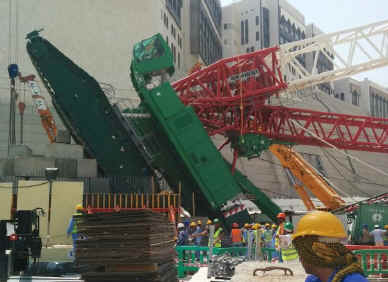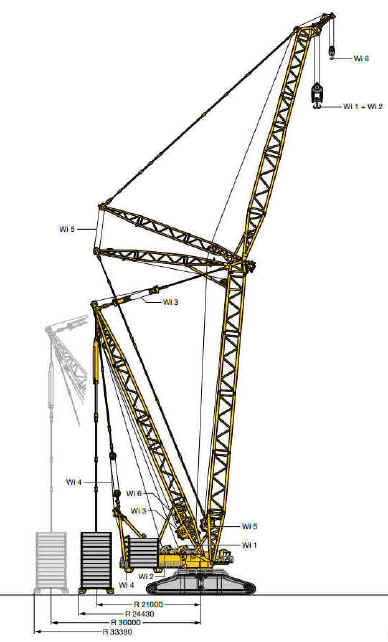
Thirteen people charged in connection with the world's worst crane disaster have gone on trial in Saudi Arabia for a third time, after previously being acquitted twice. The latest retrial in the seven-year-old case follows a decision by the kingdom's Supreme Court to quash the earlier verdicts.
The affair began in 2015 when a crane toppled on to the Grand Mosque in Mecca during the annual pilgrimage, killing 110 people and injuring more than 200. The mobile crane, which was 200 metres tall, blew over during a storm because it was not properly secured. It had been left with its boom and jib raised when they should have been lowered because of the weather conditions, according to the manufacturer's instructions.
The crane had been operated by the Saudi Binladin company (founded by Osama Bin Laden's father) which was doing construction work in the area around the mosque at the time.
In the wake of the tragedy, the Saudi authorities issued tighter rules for crane operators and the Binladin company was temporarily suspended from government contracts. However, legal action against those suspected of negligence has proved a trickier matter. Although Saudi courts are not usually noted for leniency, judges in the crane case have so far been noticeably reluctant to hold anyone accountable.
The Supreme Court is clearly hoping for a different result this time and, according to a report in Okaz newspaper, none of the judges previously involved will be allowed to take part in the new trial.
In the initial trial, which began in 2016, fourteen people connected with the Binladin company were accused of “negligence leading to death, damaging public property and ignoring safety guidelines”. None were named but local media said they included at least one Saudi billionaire and nationals from Pakistan, the Philippines, Canada, and several Arab countries.
Eventually the court decided it had no jurisdiction to rule on allegations of “safety breaches” and dismissed the charges against 13 of the defendants. It is not known what happened to the fourteenth defendant.
The Saudi attorney general appealed against that verdict and in 2017 a retrial was ordered. After considering the case for a second time Mecca's criminal court again acquitted all thirteen, saying the defendants had not been aware of the weather.
In a related case in 2017, Mecca's summary court ruled that the Binladin company had no need to compensate victims or their families or to pay for damage to the mosque. According to the Saudi Gazette, the court found the disaster "was caused by natural reasons and there was no human element behind it". The court also maintained the crane "was in an upright, correct and safe position" and that the Binladin company had taken "all the necessary safety precautions".
In the immediate aftermath of the disaster King Salman ordered payments of one million riyals ($266,000) to the family of each person killed and half that amount for anyone who was seriously injured. The Saudi Gazette described this as a "gesture" by the king, unconnected with the legal issue of compensation by Binladin.


 RSS Feed
RSS Feed
